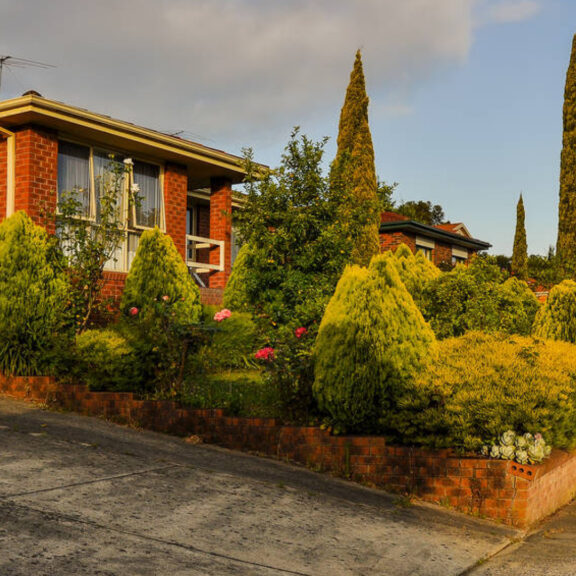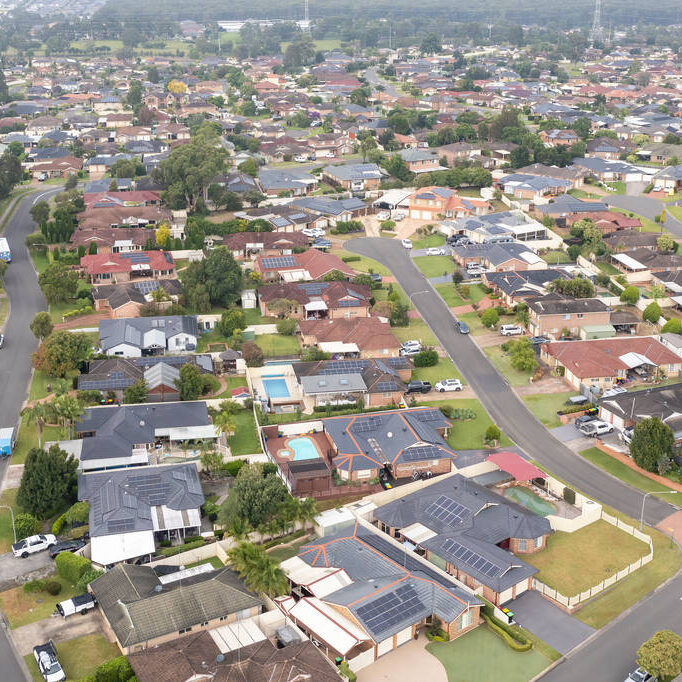You may be chasing more affordable prices, dreaming of a lifestyle change, or spotting investment potential in a different market altogether. No matter the reason, buying property in another state can be pretty tempting. But let’s be clear: buying interstate isn’t quite the same as finding a place down the road. You may have to […]
Bridging the Gap: Bridging Loans for Property Development
In property investment, timing is everything. Whether you’re eyeing a prime development opportunity or planning to flip houses to upgrade your portfolio, the ability to move quickly can make all the difference. This is where bridging loans may come into play. They offer a fast, flexible financing solution to bridge your financial gap between property transactions. Today, let’s explore bridging finance and discuss how it can benefit your property investment endeavours in Australia.
What Are Bridging Loans?
Bridging loans are short-term financing options designed to ‘bridge’ the gap between a new property purchase and the sale of an existing one. These loans typically have a six to 12-month term, providing you enough funds and time to secure a new property before your current one sells.
How Do Bridging Loans Work?
When you secure a bridging loan, the lender typically assumes the mortgage on your current property while financing the purchase of the new property. The total amount borrowed is known as the ‘Peak Debt.’ It includes the outstanding loan balance on your current home, the new home purchase price, and all the associated costs, such as stamp duty, legal fees, and lender’s fees.
Lenders often calculate bridging loans’ minimum repayments on an interest-only basis. Once you sell the first property, the net proceeds (sale price minus selling costs) are used to reduce the Peak Debt. The remaining debt becomes the ‘End Debt,’ which you repay as a standard mortgage product from that point onwards. That End Debt will be lower than if you had chosen to get a traditional loan.
For example, if you have a mortgage balance of $200,000 on your current property and need $800,000 for a new property, you can borrow up to $1,000,000 through bridging loans. This amount would be your Peak Debt. While waiting to sell your current property, you’re paying the interest, and your maximum debt remains at $1,000,000. If you sell your current property for $600,000 and use that money to pay off part of your debt, you’ll be left with an End Debt of $400,000 ($1,000,000 – $600,000). That $400,000 is much lower than if you had decided to take out a conventional home loan for that $800,000 you needed for your new property.
The Power of Bridging Finance in Property Development
If you’re a property developer or investor, bridging loans can be a game-changer in keeping your cash flow stable while seizing incredible opportunities. Here’s why:
- Speed of Acquisition: In a hot property market, waiting for your current property to sell before making an offer on a new one could mean missing out on great opportunities. A bridging loan allows you to act decisively. Bridging loans can be approved and funded much faster than traditional loans, helping you secure prime properties & development sites before others could.
- Flexibility in Repayment: Many bridging loans offer interest-only repayments during the short loan term, with the principal repaid when your development project is completed or existing property sells. This can significantly ease cash flow pressures during property development or renovation.
- No Sale, No Stress: Some bridging loan products offer a ‘no sale, no stress’ feature, where if your existing property doesn’t sell within the loan term, the loan can be converted to a standard mortgage. That particular loan feature can provide peace of mind and flexibility in your exit strategy.

Key Considerations for Taking Out Bridging Loans
While bridging loans offer incredible benefits, it’s still vital to approach them with a clear strategy. Here are some considerations to keep in mind before applying:
- Exit Strategy: Have a solid plan for how you’ll repay the bridging loan, whether selling your existing property or refinancing to a standard mortgage. Also, consider whether you’re better off applying for a bridging loan with a ‘no sale, no stress’ feature.
- Interest Costs: Bridging finance rates may be higher than those of standard mortgages. Factor these costs into your overall financial plan even if you only need to settle interest-only repayments during the loan term.
- Loan-to-Value Ratio (LVR): Lenders may offer different LVRs for bridging loans compared to standard mortgages. Understand how this impacts your borrowing capacity.
- Valuation of Properties: Both existing property and the one you’re purchasing or developing will need to be valued. Be prepared for potential discrepancies between your expectations and professional valuations.
Tips for Maximising Bridging Loans
As with any financial product, it’s crucial to shop around and compare offers from different lenders. Here are some tips:
- Seek Professional Advice: Consult a mortgage broker specialising in property investment. They can help you understand the complexities of bridging finance and find the best solution to maximise it for your needs.
- Read the Fine Print: Pay close attention to the terms and conditions, particularly about fees, interest calculations, and repayment requirements.
- Consider Your Timeline: Be realistic about how long it might take to sell your existing property or complete your development project. Choose a bridging loan term that aligns with your expectations.
Bridging Your Way to Property Success
Bridging loans can be a powerful tool in your property investment or development arsenal. They offer the flexibility and speed needed to capitalise on opportunities in Australia’s fast-paced property market. However, like any financial product, they come with a set of risks and considerations. You need to fully understand how it works and approach it with a clear and purposeful strategy to leverage it in taking your property portfolio or development projects to new heights. Want to explore bridging loans and other funding options for your property development projects in Australia? Contact Deltos Finance. Our mortgage brokers will answer all your questions and guide you through your property investment.
Enquire Now
Find Your Perfect Finance Solution
Let's discuss your finance needs. We’re here to help.
More posts from Deltos Finance

Suburbs with the Highest Rental Yield in Tasmania
The term “rental yield” is music to any property investor’s ears. It’s the key metric that indicates the annual return on your investment, essentially the percentage of the property’s value that comes back to you in rental income. In a market like Tasmania, which has been gaining traction for its overall investment appeal, pinpointing the […]

Launceston: A ‘Second Wind’ Property Market You Should Invest in Now
When talk turns to Tasmania’s property scene, it’s easy for the spotlight to shine brightly on Hobart, with its bustling waterfront and historic charm. But just a little further north, nestled at the head of the picturesque Tamar Valley, lies Launceston—a city that quietly hits its stride and presents a compelling proposition for savvy property […]

How Often Does Property Double in Value?
Every homeowner has likely dreamed of their property doubling in value in the future, turning into a valuable nest egg or funding their next big adventure. But how long does it actually take for a property to double in value? And how often does it happen? While there’s no magic eight-ball to predict the property […]

Stamp Duty Exemption for First-Home Buyers in Tasmania: Has It Paid Off?
Purchasing a property has historically come with major financial difficulties, especially for first-home buyers in Tasmania or any other state for that matter. The stamp duty is one of those most notable monetary challenges for homebuyers. Essentially, it’s a tax levied on property purchases that often adds tens of thousands of dollars to upfront costs. […]

Difference Between Airbnb and Traditional Renting in Hobart
Hobart’s property market has become a hotspot for investors largely because of its strong tourism demand and stable rental market. But that doesn’t mean all property investments in this Tasmania capital are a sure win. One factor to consider is deciding between short-term rentals like Airbnb and traditional long-term renting. Each option has distinct advantages […]

Is Launceston a Good Place to Live?
The short answer is yes, especially if you want a more affordable lifestyle without giving up access to key services, natural beauty, and long-term opportunities. Also, with its blend of heritage charm, steady economic growth, and a property market still within reach for many Australians, Launceston, Tasmania, is gaining momentum as a popular area for […]

Hobart Property Management Fees: A Complete Guide
You’ve already secured an investment loan and finalised your rental property purchase in Hobart. Now, it’s time to take action by listing the property for rent and managing it effectively to start generating rental income. But how much should you expect to spend on property management in Hobart, Tasmania? As Tasmania’s capital continues to attract […]

How Rising Property Prices Affect Your Home Loan and Buying Potential
Here’s the good news: the Australian real estate market has been experiencing significant growth in recent years, with house prices in major cities reaching record highs. It can be a huge win for homeowners and investors, especially those planning to sell their properties soon. However, this can be an issue for potential property buyers, including […]

Build Your Wealth with a Simple Guide to Using Your Home Equity
Building wealth requires adopting the right mindset and being strategic when using available financial instruments. Essentially, it’s about making your money work in your favour. But what if you don’t have enough cash to start creating wealth? There’s an underutilised strategy that we want to share with you, and that is leveraging your home’s equity—the […]


